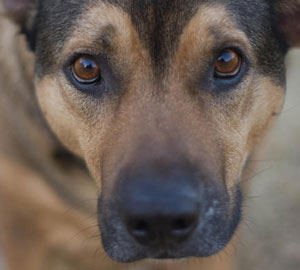Protect Your Pets When Using Pesticides
By Chris Williams on December 24, 2013.
 Question
Question
My sister nearly killed her dog when she treated him for fleas and then put him into an indoor kennel while she went to work. The vet said that, because the dog was in an enclosed space, it almost overdosed from the pesticide. That got me worried. What should I be doing to protect my own dogs from pesticides that I use around the home?
Answer
Good question, and one that too few people even consider. Pets can be exposed to pesticide in much the same way as people—when they breathe it in, absorb it through their skin, or ingest it. Your pet’s risk of pesticide poisoning depends on the toxicity of the pesticide and your pet’s level of exposure. Other factors such as the age and general health of your pet figure in, too.
The three main precautions that you can take are to:
- Always read the product label before application
- Use low toxicity pesticides
- Minimize your pet’s exposure to the treated area both during and after pesticide application
Precautions When Using Pesticides In a Home With Pets
Whether you’re applying pesticides yourself, or are having a professional treat your home, make sure that these precautions are taken to protect your pets during the process:
- Remove pets from the area to be treated. If using foggers (bug bombs), remove pets from the house completely
- Remove pet toys, bedding, food and water bowls before treatment of the area
- Cover fish tanks to keep vapors or pesticide dusts from entering the tank. If using foggers, unplug the tank’s pump (but don’t forget to plug it back in after an hour or so)
- If using rodent or insect baits, make sure they are in a pet-proof bait station or placed in an area where pets cannot reach them. Baits often contain food ingredients which pets may find appetizing
- Keep pets out of the treatment area for the time specified on the product label, or until any pesticide sprays have dried, whichever is the longest. Using fans will help ventilate and dry the area.
- Make sure pesticides are stored where pets cannot reach them
Sometimes in spite of our good intentions, pets are accidentally exposed to pesticides. If you have questions about pesticides and pets, or need assistance, call your veterinarian or the National Pesticide Information Center (1-800-858-7378). If your pet is exhibiting signs of possible poisoning such as difficulty breathing, bleeding, tremors, seizures, convulsions, or is unconscious, contact your veterinarian or an animal poison control center immediately. The ASPCA Animal Poison Control Center can be reached at 1-888-426-4435.